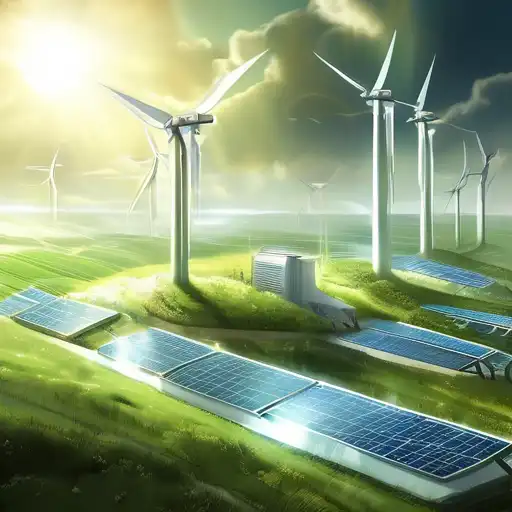The Next Era of Renewable Energy: Innovations and Trends
The global energy landscape is undergoing a significant transformation, driven by the urgent need to combat climate change and reduce our reliance on fossil fuels. Renewable energy sources, such as solar, wind, hydro, and biomass, are at the forefront of this shift, offering cleaner, more sustainable alternatives. This article explores the future of renewable energy, highlighting key innovations and trends that are shaping its evolution.
Emerging Technologies in Renewable Energy
Technological advancements are making renewable energy more efficient and accessible than ever before. From next-generation solar panels that capture more sunlight to wind turbines that can operate in low-wind conditions, the future of renewable energy is bright. Innovations such as energy storage solutions are also critical, enabling the storage of excess energy for use during peak demand times.
The Role of Policy and Investment
Government policies and investments play a pivotal role in the adoption of renewable energy. Incentives for renewable energy projects, along with stricter regulations on carbon emissions, are accelerating the transition to cleaner energy sources. The growing interest from private investors in renewable energy projects is also a positive sign for the industry's future.
Renewable Energy in Developing Countries
Developing countries are increasingly turning to renewable energy to meet their growing energy needs. With abundant natural resources, these regions have the potential to leapfrog traditional energy infrastructure and adopt renewable solutions directly. Projects like solar-powered microgrids are providing reliable electricity to remote communities, transforming lives and economies.
Challenges and Opportunities
Despite the progress, challenges such as intermittency, energy storage, and grid integration remain. However, these challenges also present opportunities for innovation and collaboration. The development of smart grids and the integration of artificial intelligence in energy management are examples of how technology is addressing these issues.
Conclusion
The future of renewable energy is not just about technology; it's about creating a sustainable, equitable, and resilient energy system for all. With continued innovation, supportive policies, and global cooperation, renewable energy can meet the world's energy demands while protecting the planet for future generations.
As we look ahead, the potential for renewable energy is limitless. By embracing these changes, we can ensure a cleaner, greener future for everyone. For more insights into renewable energy trends, explore our renewable energy resources.
